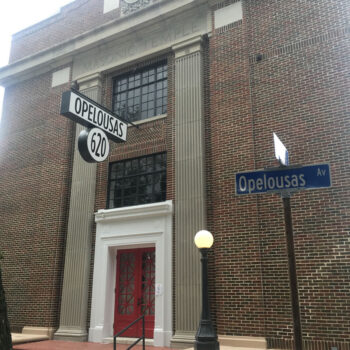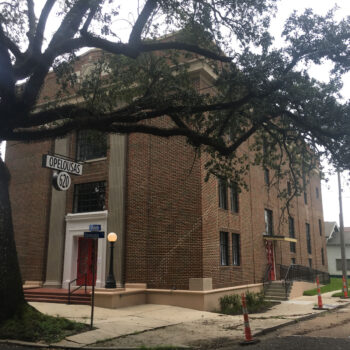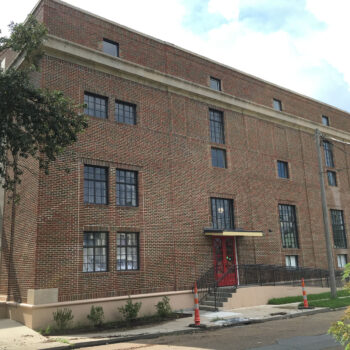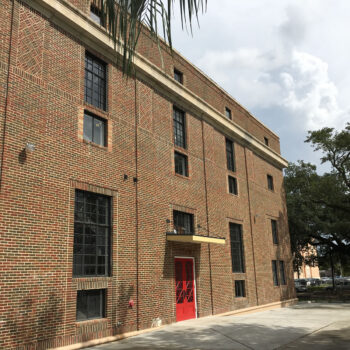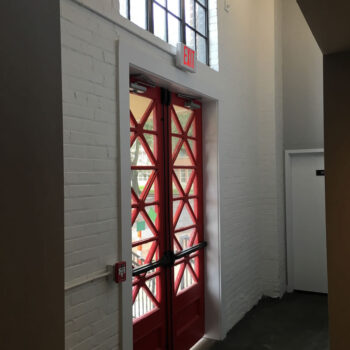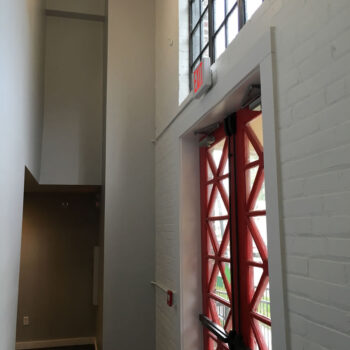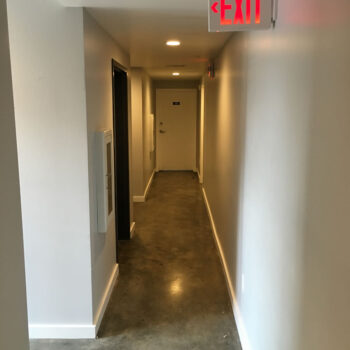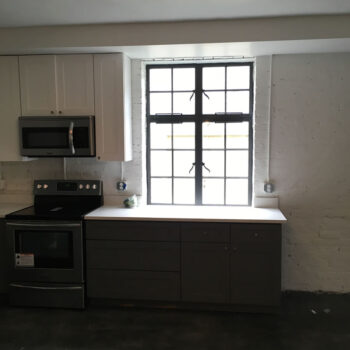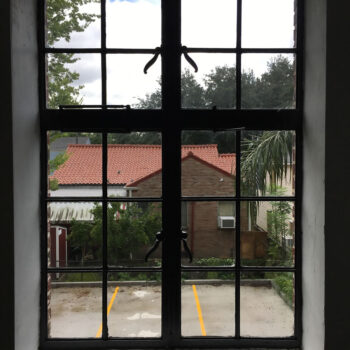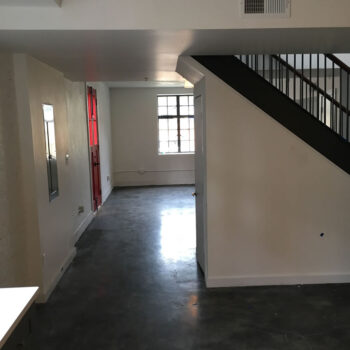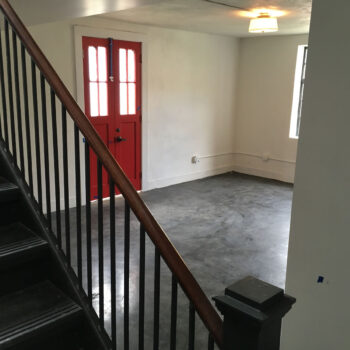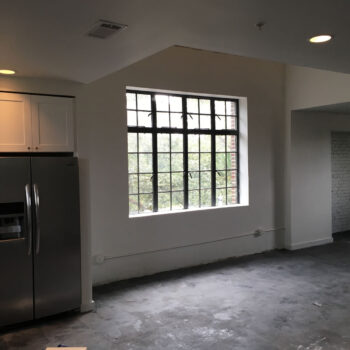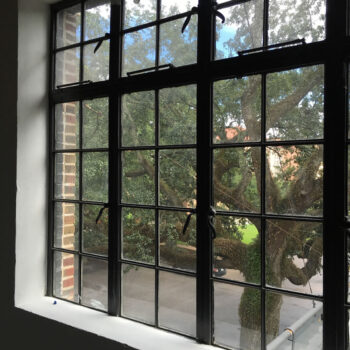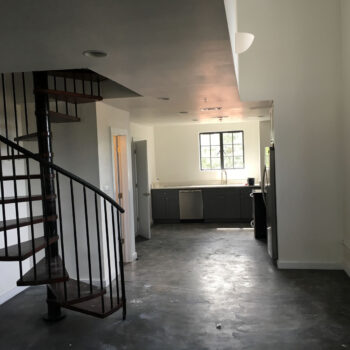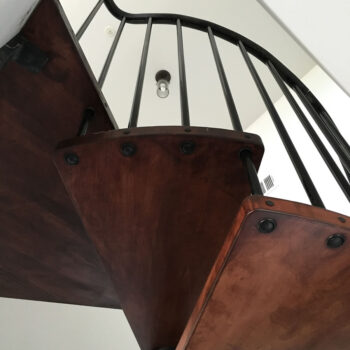Freemasonry occupies a storied place in American history, representing an influential subset of the body politic: fraternal social organizations independent of any political or religious authority. St. John’s Masonic Temple, located within the Algiers Point National Register Historic District in New Orleans, documents that neighborhood’s participation in the surge of Masonic Temple construction that occurred throughout the United States in the 1920s. Its completion in 1926 coincided with other Masonic initiatives throughout the city, including the erection of the impressive, twenty-story Grand Lodge of Louisiana headquarters at 333 St. Charles Avenue (now a hotel).
St. John’s both evidences Freemasonry’s impact upon New Orleans and serves as an excellent example of the spare, art deco-influenced neoclassicism of the 1920s. Here, Sam Stone’s design is notable for the intricate brickwork of differing bonds executed for decorative effect, a principal element of the handsomely-finished exterior that is, overall, almost completely unaltered from its original appearance.
By the time the New Orleans Redevelopment Fund acquired the building in 2014, its use as the gathering place for a fraternal organization was decades in the past. The Masons vacated 620 Opelousas after World War II; it subsequently served as a neighborhood post office for many years. In the aftermath of Hurricane Katrina, the building was acquired for conversion into multifamily housing, but the development stalled after the completion of much interior demolition, the insertion of new wooden framing and MEP elements, and the addition of interior steel stairs.
NORF hired Crescent Growth Capital to provide contingent fee-based historic preservation consulting and historic tax credit monetization services, in support of its $3.6 million redevelopment of St. John’s Masonic into ten market-rate apartments.
Crescent’s in-house historic preservation specialist prepared a four-element Historic Preservation Certification Application over a thirty-month period, submitting Louisiana State HPCAs in conjunction with the federal application parts. Part 3 approval was received on April 28, 2017, with state historic tax credit monetization accomplished by Crescent and tax credit sale proceeds delivered to NORF in July.
For the second time in nearly as many years, Crescent Growth Capital’s historic preservation consulting work was honored by the Louisiana Landmarks Society, as Opelousas Apartments received an Award for Excellence in Historic Preservation in 2019.
620 Opelousas Ave, New Orleans, LA 70114

